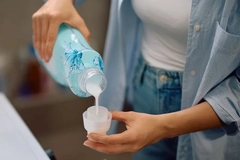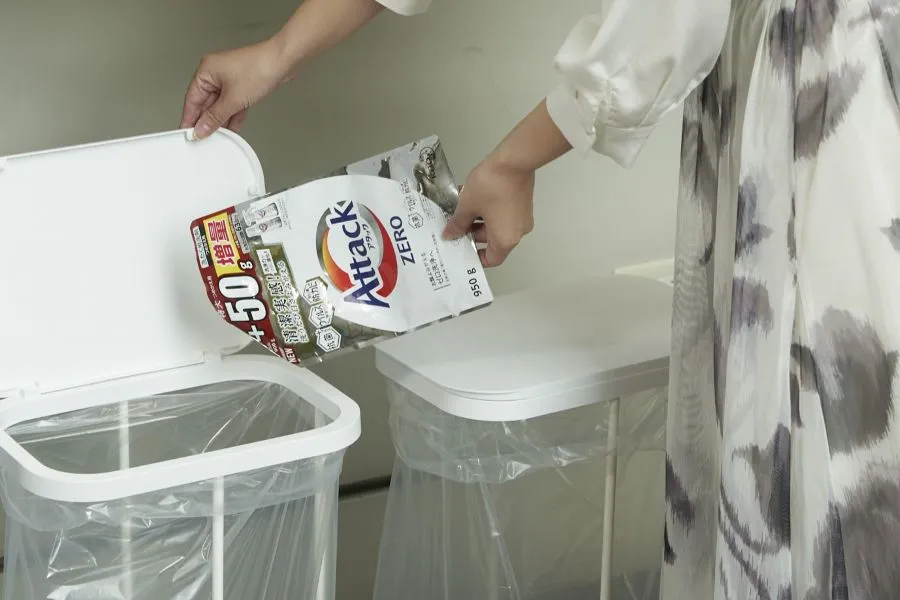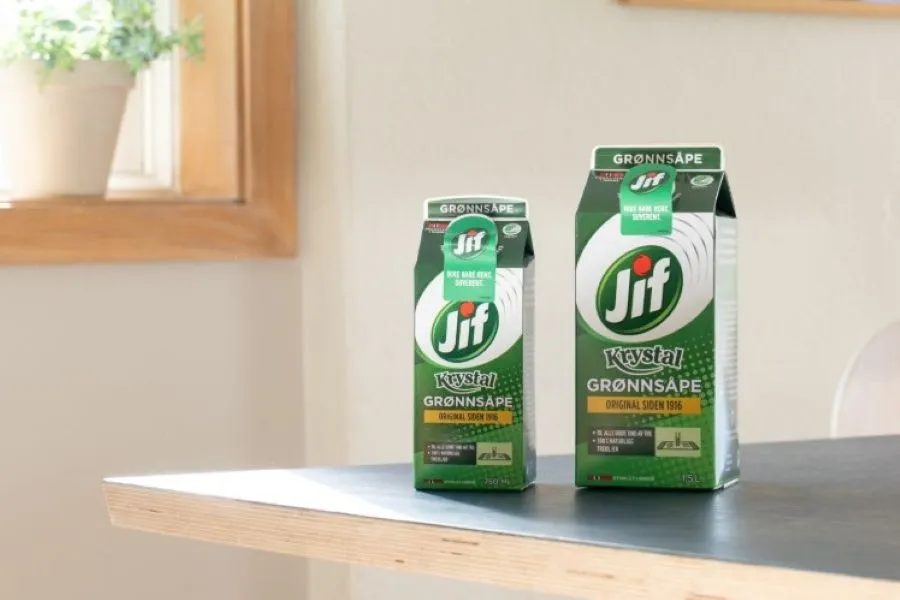
- Industry news
Industry news
- Category news
- Reports
- Key trends
- Multimedia
Multimedia
- Journal
- Events
- Suppliers
Suppliers
- Home
- Industry news
Industry news
- Category news
- Reports
- Key trends
- Multimedia
Multimedia
- Events
- Suppliers
Suppliers
Refillable solutions gain ground amid household packaging shift
Key takeaways
- Kao, Clean Cult, and Elopak are leading the shift from single-use plastics to circular and refillable solutions driven by rising consumer demand for sustainable products.
- Kao is advancing recycling innovation in Japan through refill packs made with recycled materials.
- Clean Cult and Elopak are championing low-carbon paper cartons for household cleaning products.

Household cleaning companies are pushing boundaries with bold approaches as consumers increasingly demand cleaner, greener products. Businesses are shifting from traditional single-use plastics to refillable packaging alternatives.
Packaging Insights speaks to Kao, Clean Cult, and Elopak about how innovation, collaboration, and consumer participation in household packaging can converge to clean up homes and the environment.
“Consumer expectations for lower-impact materials have never been higher, and retailers are demanding packaging that’s simpler and more circular,” says Clean Cult CEO Ryan Lupberger.
“‘Paper-based,’ ‘refillable,’ and ‘less waste’ lead the conversation. Shoppers are looking for tangible, functional solutions: easy to use, easy to store, and easy to recycle.”
Reducing plastics
Kao, a Japanese global chemical and cosmetics company, is tackling the challenge of plastic waste in household packaging through recycling innovation and consumer engagement.

“We have established the refill market in Japan as a simple and effective way to reduce plastic use. Our packs are excellent at protecting their contents, but because they are made from several thin layers of different materials, they have traditionally been difficult to recycle,” shares Mitsugu Iwatsubo, vice president, packaging technology research at Kao.
“To address this challenge, Kao developed a refill pack made with recycled materials and launched it in limited quantities in 2023. The experience is helping us further advance the use of recycled materials in future circular packaging solutions.”
 Kao’s goal is to create a society in which everyone can take part in recycling in everyday life (Image credit: Kao).The company’s focus is on ensuring consumer trust and usability. Kao notes that it applies “strict quality standards and thoroughly tests its packaging.”
Kao’s goal is to create a society in which everyone can take part in recycling in everyday life (Image credit: Kao).The company’s focus is on ensuring consumer trust and usability. Kao notes that it applies “strict quality standards and thoroughly tests its packaging.”
Collaborative government partnerships
Kao works together with different stakeholders to create an environment where consumers feel more empowered to support recycling. The company is demonstrating a circular system that allows consumers to actively participate in the collection and resource recovery of used packaging.
“In Japan, plastic recycling has traditionally been managed by local governments. By becoming directly involved as a manufacturer — and achieving a process that turns used refill packs back into new ones — Kao has made the recycling cycle more visible and increased consumer engagement,” says Keiji Seto, director, R&D strategy at Kao.
“Building on its local collection initiatives with municipalities, Kao has now received government approval for independent collection, expanding the potential for stable and legally compliant recycling across more regions.”
Kao points out that there are still institutional challenges, such as detailed reporting requirements and limits on subcontracting, to further improve local waste collection. The company aims to expand cost-efficient collection systems that leverage existing logistics networks, while working with the Japanese government to support more flexible regulations and explore joint collection models.
Paper-based solutions
Across the Pacific, US-based Clean Cult recently partnered with supermarket chain Whole Foods to supply its refillable packaging solutions. The solution is said to be responsibly designed and meet biodegradability standards.
“The household cleaning aisle is transforming. After decades of relying on single-use formats, the industry is pivoting toward refills and paper-driven solutions,” says Lupberger.
“Paper delivers on all fronts: functionality, recyclability, and shelf efficiency, making it the clear path forward.”
“We’re continuing to innovate in the paper carton space, exploring new structural formats, materials, and finishes that push the category forward. Our focus is on elevating functionality and shelf impact while staying true to recyclability and simplicity — setting new benchmarks for what paper packaging can achieve in household care.” Elopak's cartons aim to help brands reduce plastic consumption, cut GHG emissions, and support a renewable value chain (Image credit: Elopak)
Elopak's cartons aim to help brands reduce plastic consumption, cut GHG emissions, and support a renewable value chain (Image credit: Elopak)
Reducing carbon footprint
In Europe, Elopak is also advancing the shift toward sustainable packaging. The company recently supplied its D-PAK cartons to Norway’s Orkla Home & Personal Care for its Jif-branded all-purpose and floor cleaners.
The D-PAK cartons are said to offer a lower environmental impact than low-density polyethylene (LDPE) pouches when used as refill packaging for household products.
“Elopak’s D-PAK cartons are made primarily from sustainably sourced paperboard, making them naturally renewable with a much lower carbon footprint than the plastic bottles that Jif previously used. The square shape of the carton makes it more efficient to transport and easier for consumers to buy and store in bulk,” says Dirk Endlich, vice president plastic to carton at Elopak.
“Earlier this year, we conducted an LCA comparing D-PAK cartons with LDPE plastic pouches as refill packs for laundry detergent. The findings showed that cartons use 44% less plastic than the pouches and have a 24% lower impact on global warming.”
Visions for sustainability
Elopak and Clean Cult are championing paper’s circular potential, reinforcing the growing shift toward paper-based packaging solutions within the household care sector.
“We’re confident that cartons can play a major role in reducing this sector’s reliance on plastic, particularly when it comes to refills. Our consumer attitudes study in the UK and Germany last year said that 65% of shoppers would be happy to buy fabric softener in a carton, with 59% saying the same for laundry detergent and 56% for floor cleaner,” shares Endlich.
“We’ll continue to be at the forefront of the plastic to fiber transition: helping dozens of household cleaning brands to transition away from plastic bottles and into low-carbon, sustainable cartons.”
Lupberger predicts that this trend of refillable packaging will accelerate in the household cleaning sector.
“The refillable packaging market alone is projected to grow from roughly US$45 billion in 2024 to over US$62 billion by 2030. Paper is emerging as the innovation frontier, where structure, design, and clear claims are redefining the category,” he says.
For Kao, making recycled and reusable plastics more practical and visible to consumers is their future plan.
“We will develop packaging based on the principles of the Waste Hierarchy. Our goal is to create products that offer both ease of use and environmental value for consumers.”
“To make effective use of plastic resources, Kao is committed to pursuing the principles of reduce and reuse, while also taking on the challenge of material recycling, chemical recycling, and horizontal recycling — turning used packaging back into packaging,” concludes the spokesperson.











